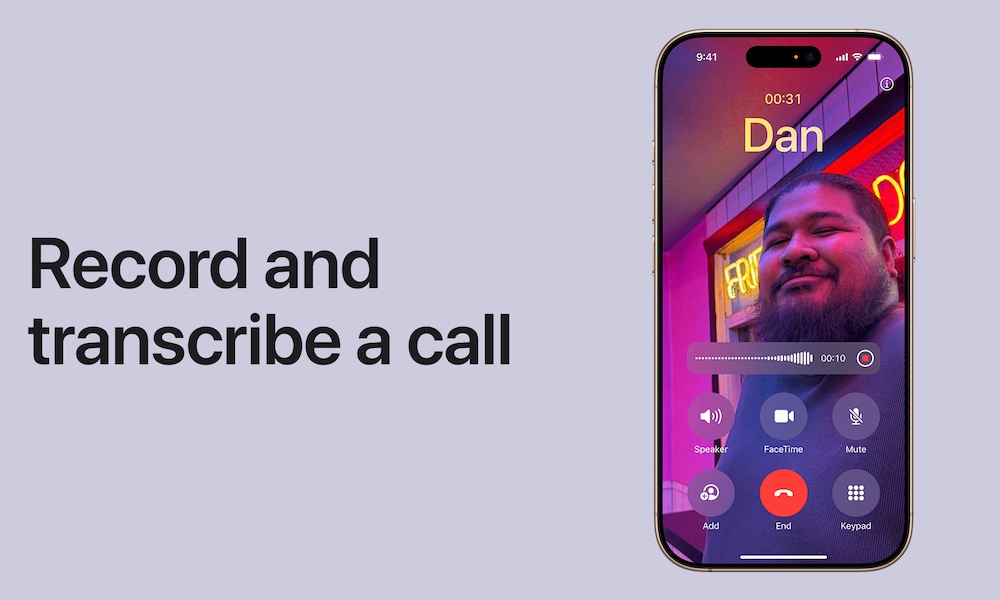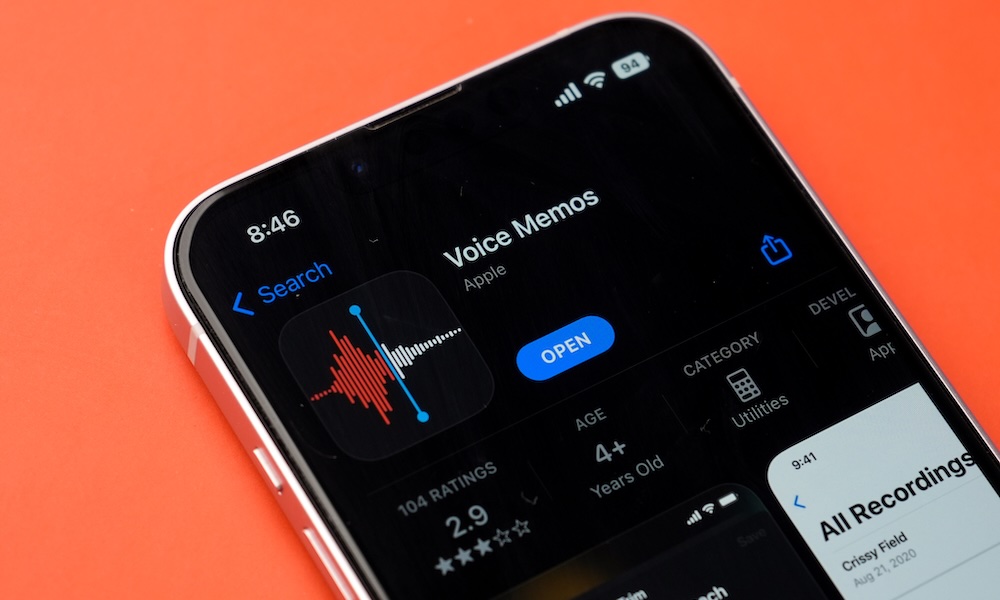Call Recording — Do You Know Your Rights?
 Apple
Apple
Toggle Dark Mode
While Apple Intelligence captured everyone’s attention, iOS 18.1 also introduced a built-in call recording feature for all iPhones that could run that version. This means iPhones dating back to the iPhone XR, released in 2011, are capable of recording calls. During beta testing, it was initially believed call recording would be limited to iPhones capable of running Apple Intelligence, but this wasn’t the case.
We’ve detailed how the call recording works, including the handy call transcription feature. Have you recorded calls or received the automatic notification that another participant on the call initiated a recording? Fortunately, iPhone’s call recording feature ensures everyone knows they’re being recorded so they can choose to end the call or voice their objections if they prefer not to be. With so many different privacy laws out there, requiring the consent of all participants was likely the only way the feature could make its way to the public.
Even if you consent to being recorded, it can feel unsettling. Although it may not be legal, there are also ways you can record (or be recorded) using your iPhone without obtaining consent. For example, if you’re in a quiet environment, put your iPhone on speaker, and open the Voice Memos app, the call can be recorded.
Do you know your rights when it comes to recording calls on your iPhone or being recorded? You may be surprised to learn federal and state laws can differ considerably in this regard. It’s also not always clear which law applies to interstate calls — federal or state law. If state law, which state’s law applies? Here’s a quick overview. Remember, this is not legal advice.
There are various reasons someone might want to record a call. With the widespread use of AI, having a searchable call transcript that can also be summarized into a few sentences can be a valuable time-saving tool. So, we’re not suggesting that anyone who wants to record a call is motivated by bad intentions. We do think it’s important to be generally aware of your rights.
For starters, the federal law that applies to recording phone calls is the Electronic Communications Privacy Act (ECPA). Generally, the ECPA requires one-party consent for call recording. This means any active participant on a call can record the conversation without asking the permission of the others on the call — or even letting them know that they’re being recorded.
Thirteen states require “two-party consent.” This means a call may be recorded only with the consent of all parties. So, “two-party” doesn’t mean only two people on the call, it means everyone in the conversation must consent. These two-party consent states are California, Connecticut, Delaware, Florida, Illinois, Maryland, Massachusetts, Michigan, Montana, Nevada, New Hampshire, Pennsylvania, and Washington.
The laws in any state can be very nuanced. For example, in some two-party consent states, consent must be explicitly stated (in which case even the iPhone’s spoken notification may not suffice). In other states, consent may be implied. Further, some states say consent only applies if the person has a reasonable expectation of privacy (taking a call in your home versus in a restaurant or coffee shop).
If calls are taking place between participants in multiple states, it’s not always clear what law applies. It could be federal law or the law of the state in which the recording took place. There are also exceptions to consent in federal and state laws, such as for law enforcement, safety, and workplaces.
If you’re going to record a call with your iPhone, it’s best to use iPhone’s built-in feature and obtain the consent of everyone on the call. If you’re trying to avoid consent and making calls across state lines, ensure you’re following the strictest state law of any participant. The penalties can be both civil and criminal, and result in fines and imprisonment. Again, though, this is not legal advice.








